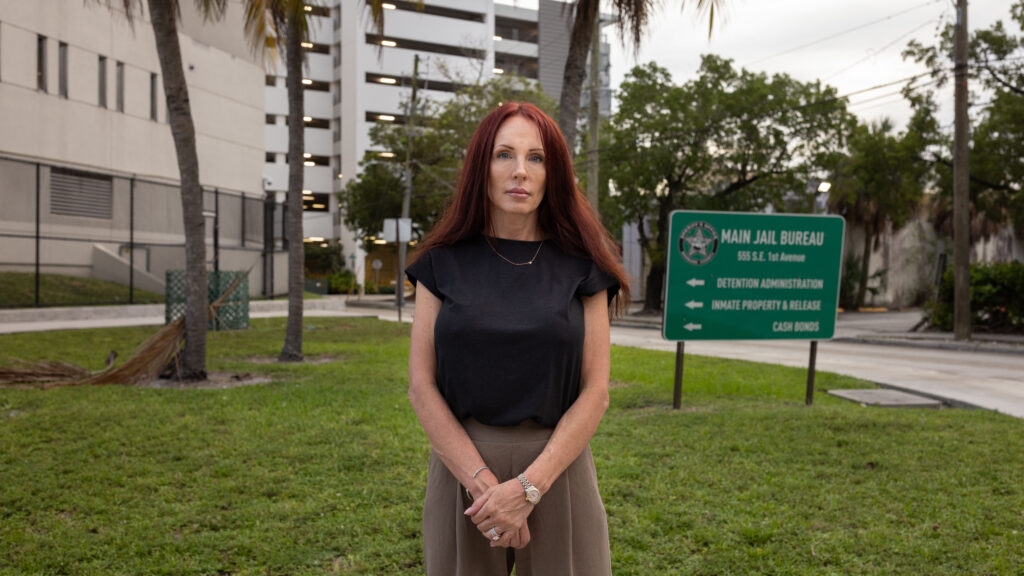The wrongful arrest of Jennifer Heath Box in December 2022 is a striking example of how the heavy-handed law enforcement policies fostered under Governor Ron DeSantis’ administration can lead to devastating consequences for innocent individuals. As Florida has increasingly embraced an aggressive stance on policing, incidents like Jennifer’s—where law enforcement fails to properly assess the situation and correct their mistakes—are becoming alarmingly common.

Jennifer’s ordeal began when she disembarked from a cruise at Fort Lauderdale’s Port Everglades. She was surrounded by officers, informed of an arrest warrant from Harris County, Texas, and detained despite overwhelming evidence that she was not the person named in the warrant. Her wrongful arrest, driven by a bureaucratic error that placed her photo on the warrant, demonstrates the rigidity of Florida’s law enforcement approach, one that places procedure over human dignity and accountability.

Governor DeSantis has built a political platform centered on expanding law enforcement powers, which he presents as a necessary measure to combat crime and maintain public safety. However, this “tough-on-crime” approach can sometimes lead to a culture within law enforcement that is less concerned with individual rights and more focused on exerting authority.

The handling of Jennifer’s case by the Broward County Sheriff’s Office exemplifies this culture. Despite clear evidence—such as a different middle name, height, eye color, and even birthdate—officers insisted on detaining her. Instead of using basic investigative measures to rectify the mistake, they escalated the situation, subjecting Jennifer to three days of harsh treatment, including a body cavity search, freezing conditions, and emotional distress.

This approach to law enforcement has been emblematic of the DeSantis administration’s emphasis on strong policing, often at the expense of civil liberties. Under his leadership, the state has seen a rise in legislation that grants broader powers to law enforcement officers, often reducing oversight and increasing the risk of abuses. In a state where arrest quotas, zero-tolerance policies, and aggressive policing tactics are celebrated, cases of mistaken identity like Jennifer’s become inevitable.

Jennifer’s story is not unique. Florida has a history of mistaken identity arrests, particularly involving travelers flagged by automated systems used at ports and airports. However, the state’s tendency to double down on law enforcement decisions—even in the face of clear mistakes—reflects a troubling pattern.

By failing to correct obvious errors, law enforcement agencies like the Broward County Sheriff’s Office are emboldened by a legal and political environment that prioritizes arrests over justice. This pattern leads to an environment where, as Jennifer was told upon her release, “stuff happens”—a disturbing dismissal of the trauma she endured.

Governor DeSantis has publicly defended the expansion of law enforcement powers and the aggressive policing policies enacted during his time in office, arguing that they are necessary to protect Florida’s citizens from crime. But what happens when these policies turn everyday citizens into victims of the very system meant to protect them? For Jennifer, the cost of DeSantis’ law enforcement philosophy was missing Christmas with her family and her son’s deployment—a price that no innocent person should have to pay.

Her federal lawsuit, filed with the support of the Institute for Justice, seeks to hold Broward County and its officers accountable for violating her constitutional rights, including protection from unreasonable searches and seizures and her right to due process. But her case goes beyond a single legal battle—it is emblematic of a larger issue in Florida’s governance. When the pursuit of law and order becomes an unyielding, rigid machine, individual rights and humanity are too often overlooked.

Jennifer’s experience serves as a cautionary tale about the dangers of unchecked power in law enforcement, especially under a governor who has empowered these agencies with broad authority. Her story raises critical questions about the balance between public safety and individual freedoms, and whether Florida’s pursuit of aggressive policing is truly protecting its citizens or merely creating new victims like Jennifer.

As Florida continues to expand its law enforcement apparatus under DeSantis, Jennifer’s case illustrates the very real dangers that come with an unrelenting approach to policing. Without proper safeguards, the state risks fostering a culture of impunity, where innocent people can be detained, mistreated, and dismissed—only to be told, “it happens.”





